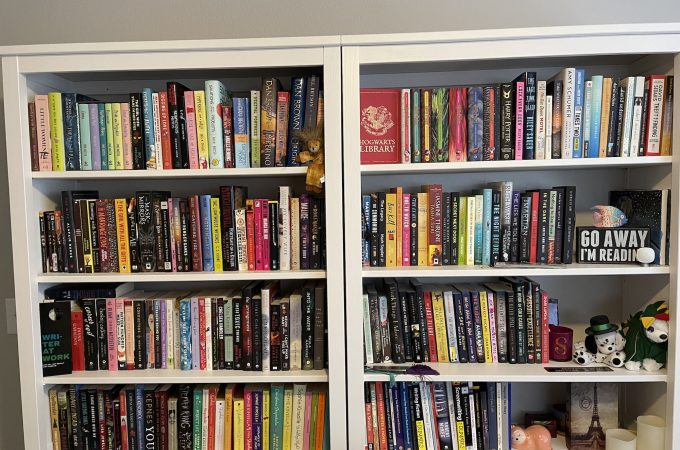
How to get motivated as a writer
“If you wait for inspiration to write you’re not a writer, you’re a waiter.” – Dan Poynter
Truer words have never been spoken. I’ve often found myself burnt out from life and dreaming of my ideal writing life and then my family or friends will ask what I’m waiting for?
Well, I stutter, I’m waiting to be inspired or motivated to write.
If that’s the case then I’m lucky if I have one really productive writing session each week.
Writing takes discipline and dedication.
You have to commit to your writing and find ways to self-motivate if the inspiration just isn’t coming. Like anything in life, the more you do it the better you become so when you commit to writing more it’ll be easier to create your own inspiration each time you sit down to write.
10 tips for finding motivation to write

1. Prioritize your writing
Writing has to become a priority in your life. It deserves your full attention and dedication if you want to call yourself a writer. You don’t have to be published, you just have to commit to getting words on the page each day or on set days you know you can dedicate to writing.
You may have to shift other priorities around or really confront your time management skills to make writing a priority in your life. I’ve had to confront my own time wasting habits as once I click on a video on YouTube I’m stuck in a rabbit hole for at least two hours — time I should have spent writing. I have to make the conscious effort to close other tabs so I can solely write.
2. Set deadlines
Treat your writing like a job or pretend you’re already working with an editor or publisher and set deadlines for your work. Instead of letting your writing just be something you get to when there’s time, set deadlines so you can’t keep pushing the work back.
Deadlines are immensely helpful for me. I know many writers who like to set word count goals but that doesn’t work for me. I prefer to set deadlines and either I have to have a certain chapter or set of scenes done by that deadline.
3. Break it down
The idea of writing an entire novel can seem overwhelming so break it down into manageable writing goals. Break it down by chapter or scenes so you feel like you’re making real progress instead of realizing you’re 75 pages into your 350-page novel.
4. Start with writing prompts
Sometimes you can feel inspired to put in the work but aren’t sure where to start. Writing prompts can be a great place as it doesn’t impact your novel and gets the creativity flowing. You’re free to write whatever and let your fingers fly across the keyboard. As you work on a writing prompt it can even spark ideas for your own work and makes it easy to transition from the writing exercise to your real writing.
5. Make it a routine
It’s easier to be motivated to write when it’s just a natural part of your lifestyle or routine. Block out time on your calendar or add it to your daily to-do list to make sure you get to it.
I’ve started to come around to timeblocking as a time management method so I calendar out my day, including both personal and professional commitments, so I know exactly when I can fit in a writing session. The most important part of making it a routine is making sure it’s repeatable and you try to get to it at the same time every day.
If you’re a morning person, maybe schedule an extra 30 minutes before you start work to knock out your writing session. I’m more creative in the evening so I schedule my writing time at 7:30.
Another tip for setting routines is having a special treat during your writing time that you don’t indulge in at other times, like a specialty coffee, tea, or sweet treat.
6. Create a dedicated writing space
Your environment can have a big impact on your writing and creativity. If you’re surrounded by memos or sticky notes about deadlines or projects for work, you might be pulled out of your creative flow. Find a spot in your home that you can make your own and surround yourself with things that put you in the right mood.
7. Block out distractions
Turn off notifications, leave your phone in another room, and close any tabs on your browser that don’t have to do with your writing time.
I’ve also learned on my writing journey that I cannot write when listening to music that has lyrics as I start wanting to sing along and my brain won’t let me sing along and write new dialogue at the same time. Try a deep focus playlist, classical music, or simply put on noise-cancelling headphones and enjoy the conversations between your characters in your head.
8. Let go of fears
At the start of every writing session, remind yourself this is a draft. Write just for you. Don’t worry about writing for anyone else or worrying about what others will think of what you’re putting on the page. Enjoy the process and remember you can always edit it later but now is the time to just get it all out of your head.
9. Set incentives
Like I mentioned above, I have a real problem with paying attention to other webpages instead of the one with my manuscript. Sometimes if motivation isn’t coming and I feel that urge to check YouTube to see if my favorite creators have posted something new, I’ll tell myself I can check after I write for 30 minutes.
Incentives can be powerful motivators as we all like getting rewarded for putting in the work.
10. Take a break
Sometimes the best thing to do is take a break and step away from the computer. Go for a walk, exercise, dance in your office, or watch one episode of a 30-minute show to clear your head. Staring at the blinking cursor can drive you crazy, so give that energy an outlet and come back to the computer refreshed.
What writing motivation tips do you have for your fellow writers? Share your ideas in the comments below!




